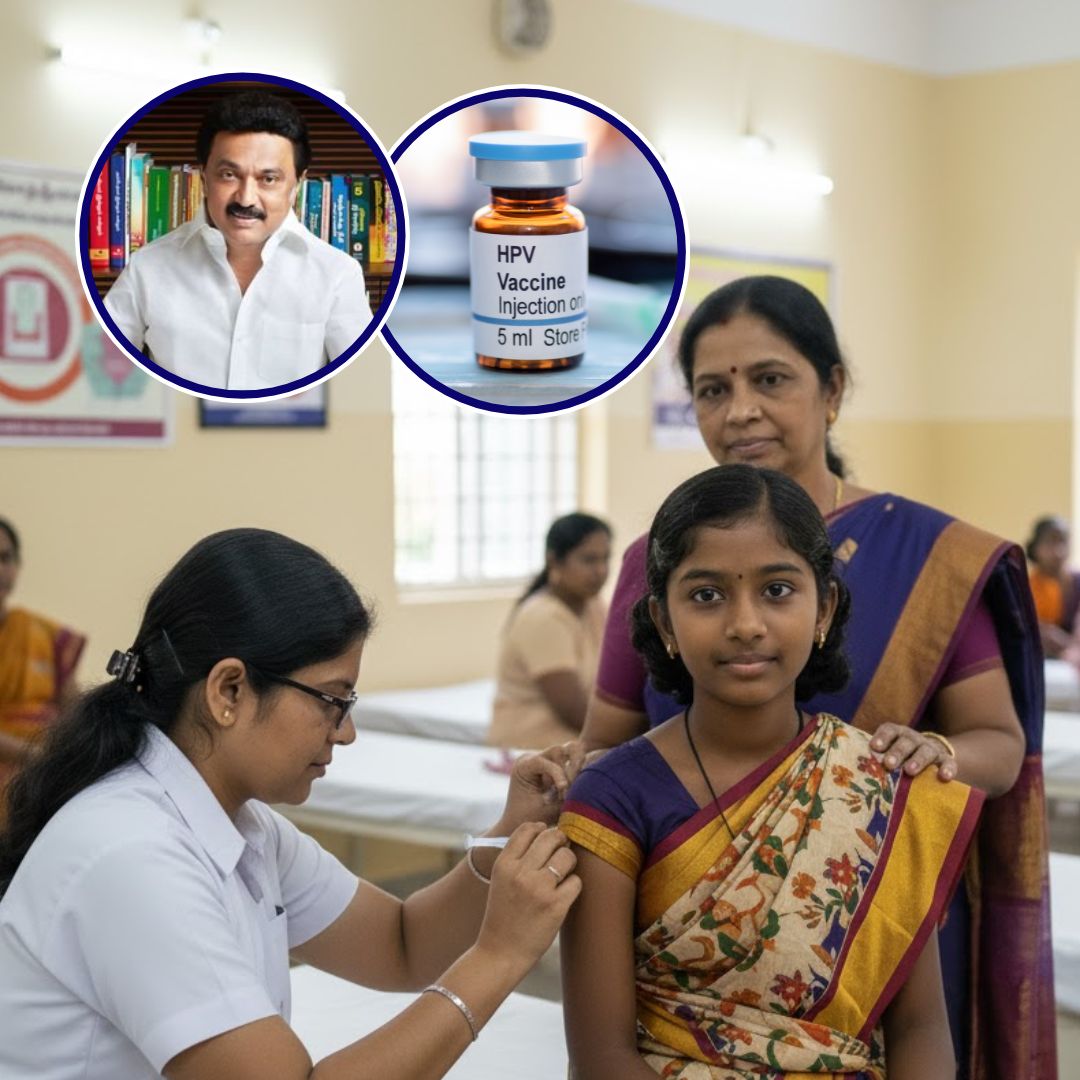Tamil Nadu’s ground-breaking free HPV vaccination programme for girls aged up to 14 years is well underway as part of its commitment to eliminate cervical cancer. This comprehensive 2025 initiative, backed by an allocation of ₹38 crore, is the first of its kind at the state level in India, ensuring equitable access to the HPV vaccine through government hospitals and community outreach.
Health officials have confirmed that the phased rollout includes awareness campaigns and vaccination drives to cover young girls across rural and urban areas alike. This move aligns Tamil Nadu with the World Health Organization’s target of eradicating cervical cancer globally by 2030, representing a decisive shift from treatment to prevention in Indian public health.
Pioneering Prevention with Government Support
Cervical cancer remains the second most common cancer among women in India, responsible for over 77,000 deaths annually, many of which could be prevented through timely vaccination and screening. Tamil Nadu’s decision to fund universal HPV immunisation for girls aged up to 14 reflects its proactive public health approach.
The state government has also increased its overall health budget to ₹21,906 crore, including ₹110 crore dedicated to enhanced early cancer detection methods, signalling a robust commitment to tackling cancer from multiple angles.
Context and National Implications
While the national HPV vaccination rollout under the Union Government’s Universal Immunisation Programme has faced challenges such as vaccine supply and public awareness, Tamil Nadu has emerged as a national leader by implementing its comprehensive programme with clear funding and organisational support. The Constitutional State Advisory Committee plays a key role in guiding the vaccine’s phased implementation across the state.
Experts view Tamil Nadu’s effort as a model for other states still dependent on less comprehensive cancer prevention strategies. In addition to vaccine delivery, the state is actively promoting health education and awareness about cervical cancer to encourage screening and dispel vaccine hesitancy.
Importance of the HPV Vaccine in Cervical Cancer Prevention
The HPV vaccine is a crucial tool in preventing cervical cancer, which is almost always caused by high-risk types of the human papillomavirus (HPV). Research from large studies, including one involving nearly 1.7 million women in Sweden, has demonstrated that girls vaccinated before the age of 17 experienced nearly a 90% reduction in cervical cancer incidence.
The vaccine works by triggering the immune system to produce antibodies that prevent HPV infections, the primary cause of cervical cancer and other related cancers. Besides cervical cancer, the vaccine protects against cancers of the vulva, vagina, penis, anus, and throat, as well as genital warts. Early vaccination is especially important because the vaccine cannot treat existing HPV infections but can effectively prevent new ones. Globally, HPV vaccination combined with screening has led to significant declines in cervical cancer rates, showing its life-saving potential.
By implementing widespread vaccination programs, especially targeting young girls before exposure to HPV, countries like Tamil Nadu can drastically reduce cervical cancer cases and deaths, ultimately saving thousands of lives each year.
The Logical Indian’s Perspective
Tamil Nadu’s initiative exemplifies how prioritising prevention and equal healthcare access can transform public health outcomes. By protecting young girls early, the state not only addresses a major cause of female mortality but also promotes health equity and empowerment.
This proactive strategy challenges other states and policymakers to replicate such inclusive healthcare measures urgently. It underscores the critical need for continued investment in preventive health infrastructure.













